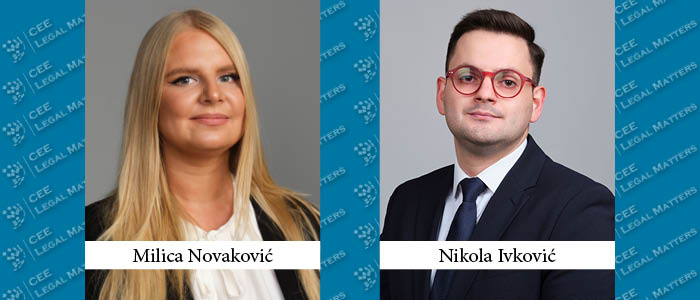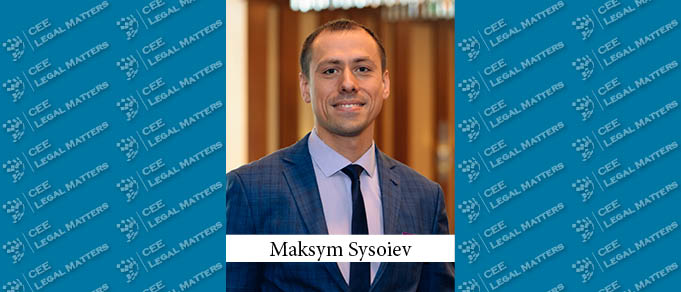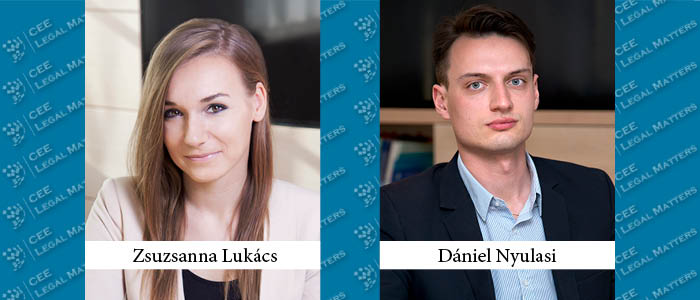On July 10, 2023, the European Commission (“Commission“) adopted its adequacy decision for the EU-U.S. Data Privacy Framework (“DPF”). The decision concludes that the United States (“US”) ensures an adequate level of data protection – comparable to that of the European Union (“EU“).
More Tax Revenues Collected Than Expected in 2022
The yearbook of the Hungarian tax authority summarising the most important tax events and statistics for 2022 has been published. It shows, among other things, the number of fines imposed and the effectiveness with which the tax authority's decisions can be challenged. We have compiled the most important and informative figures from the yearbook.
Implementation of the EU Directives on Work-Life Balance and on Transparent and Predictable Working Conditions: Slovenia
The EU Directive on Work-life balance was implemented in the Slovenian national legislation on 01 April 2023, resulting in notable changes and obligations for employers. As for the EU Directive on Transparent and predictable working conditions, its provisions will be incorporated within the amendments to the Employment Relationship Act, which will anticipatedly be presented to the National Assembly for adoption in the upcoming autumn. What implications do these directives hold for businesses?
Walk Fast, Get Further: It's Not Worth Waiting With Trademark Applications
Whichever product or service you are discussing, there are certain names, images or slogans that immediately come to mind. When setting up a business, it is crucial for any founder that the brand they represent has a distinctive, recognizable, ringing name. Building a solid business reputation is a long and bumpy road, but safeguarding legal protection for a brand name or logo to ensure exclusivity is much easier than many people think: the solution lies in trademark protection.
Reform of the Pharmaceutical Sector Taking Shape in Kosovo: A New Law on the Pricing of Medicinal Products Approved
Kosovo has recently adopted a new law to regulate the pricing of medicinal products (Law on Pricing of Medicinal Products). This marks the first time that Kosovo has taken steps to regulate the pricing of medicinal products, and it is a significant milestone in an upcoming major reform within the healthcare and pharmaceutical sector. The reform also includes new laws on medicinal products and medical devices, health insurance, and related areas.
Implementation of the EU Directives on Work-Life Balance and on Transparent and Predictable Working Conditions: Slovakia
The EU Directives on Work-life balance and on Transparent and predictable working conditions were introduced into the Latvian national legislation in August 2022 and brought about significant changes and obligations for the employers. What do they mean for businesses?
New Amendments to Construction Law: Enhancing Development and Energy Efficiency
The Serbian parliament has adopted new amendments to the Law on Planning and Construction (“Construction Law”), introducing a series of novelties expected to significantly impact the construction industry, urban planning, and energy efficiency.
Implementation of the EU Directives on Work-Life Balance and on Transparent and Predictable Working Conditions: Latvia
The EU Directives on Work-life balance and on Transparent and predictable working conditions were introduced into the Latvian national legislation in August 2022 and brought about significant changes and obligations for the employers. What do they mean for businesses?
The Tax With a Million Faces – A Fresh Look At Municipal Taxes
In 2016, when local authorities had been able to levy municipal taxes for more than a year already, we summarised the lessons that had been learned up to then from this newest genre of local taxes. At the time, we were waiting with bated breath to see what the future would bring, that is; to see just how creative local governments would get in thinking up new taxes. So what did ever happen to the ‘kitsch tax’, the ‘pony tax’ and all those other local levies? Now that a few years have passed, the time has come for us to once again peer into the weird and wonderful world of municipal taxes.
Ukrainian Law on Extension of pre-PPAs for Wind Projects, Lifting Restrictions on CPPAs, CfDs, GOs for RES Producers, Net Billing and Other Important Changes for Renewables in Ukraine Took Effect
On 30 June 2023, Law of Ukraine No. 3220-IX On introduction of changes to certain laws of Ukraine as to recovery of energy safety and green transformation of the energy system of Ukraine (the Law) was adopted in the second hearing in its entirety.
Bankruptcy Procedure Adapted for Martial Law
Law of Ukraine “On Amendments to the Bankruptcy Code of Ukraine on the Application of Bankruptcy Procedures during the Period of Martial Law” No. 3249-IX dated 13 July 2023 (“Law”) entered into force on 29 July 2023.
Misdemeanour Liability for Incorrect Tariffing of Imported Goods (Part I)
Amendments and supplements to the Customs Law, enacted in December 2022, amended the misdemeanour provisions for violations of this law. The amendments introduce greater certainty regarding the misdemeanour liability of importers and customs representatives for submitting customs declarations and accompanying documents with the goal of legitimate conducting of customs procedures. In this article we present our interpretation of the respective amendments.
Key Changes in the New Hungarian Advertising Code
The Hungarian Code of Advertising Ethics (hereinafter referred as: the “Code”) has not been revised since 2015, but the achievements of the times and the accelerated flow of information made it necessary to include some specific elements into the Code. Following approval by the advertising industry bodies, the new Code came into force on June 30, 2023. The purpose of this article is to highlight the most important changes to the content, in order of their position in the new Code.
Update of Regulations Relating to Foreign Nationals
Two laws concerning the work and residence of foreign nationals in Serbia have been updated this July. The Serbian Parliament has adopted the amendments to the Law on Foreign Nationals (“LFN”) and to the Foreign Nationals Employment Act (“FNEA”). Among the main reasons for these amendments are harmonization with EU regulations and standards, as well as the current trend of increased presence of foreign workforce in Serbia, the need for which is expected to continue to be on the rise.
Practical Insight into the Application of the FDI regulation by the Ministry of Economy of the Slovak Republic
The Act No. 497/2022 Coll. on the screening of foreign investments and on amendments and supplements to certain acts, as amended, and Slovak Government Regulation No. 61/2023 Coll. establish critical foreign investments rules (the "FDI legislation"). In cooperation with the Ministry of Economy of the Slovak Republic (the "Ministry") we have prepared an overview of some practical issues in connection with the FDI legislation.
Recent AML Developments in Moldovan’s Financial Services Sector
One of the main recent buzzwords in Moldova is AML compliance at the convergence of securities and banking which strictly follows the recommendations of the report from the fifth evaluation round of the MONEYVAL Committee of the Council of Europe, in order to transpose the provisions of Directive 2018/843 of the European Parliament and of the Council of May 30, 2018, as well as updated provisions of the Financial Action Task Force Recommendations.
State Register of Sanctions will be Created in Ukraine
On 29 July 2023, Law of Ukraine “On Amendments to Certain Legislative Acts of Ukraine on the Application of Sanctions” No. 3223-IX, dated 13 July 2023 (“Law”), enters into force.
Decision of the Council of Ministers No. 413, On the Determination of Entry, Residence, and Employment in the Republic of Albania of Foreign Nationals, Employees of an IT Company
On 07.07.2023, the Council of Ministers of the Republic of Albania adopted the Decision "On the determination of entry, residence, and employment in the Republic of Albania of foreign nationals, employees of an IT company" (hereinafter referred to as the “Decision”).
































